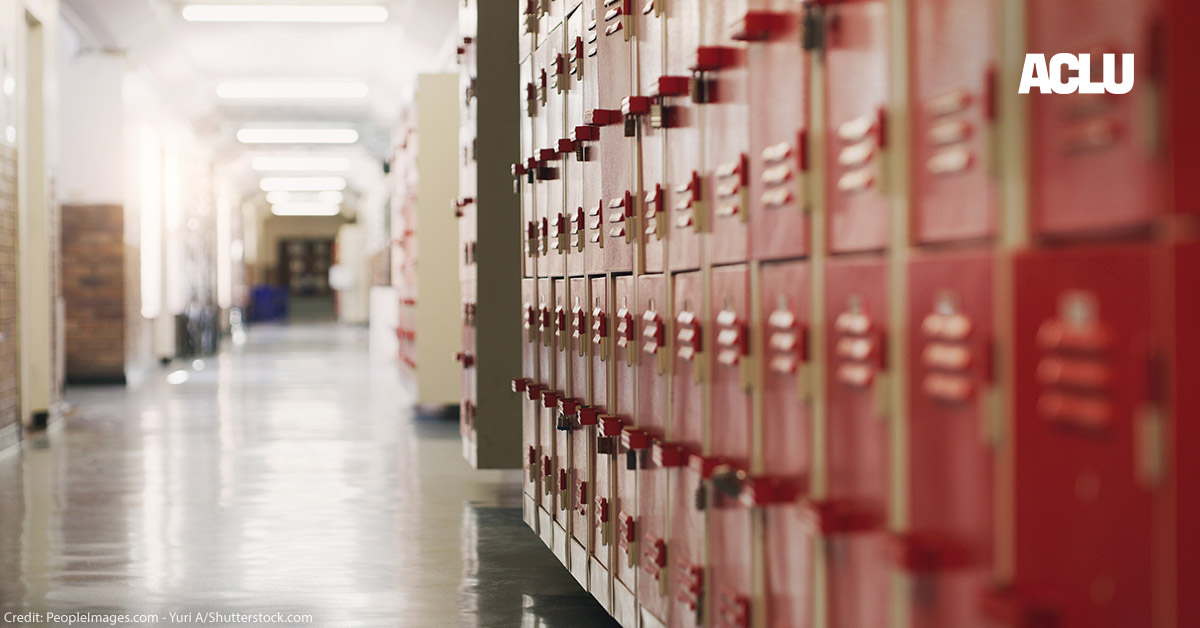Back-to-School Basics: Public Schools Are Not Sunday Schools


As public-school students return to classrooms for the new school year, some could face an unexpected test: religious indoctrination.
Thanks to various state laws enacted during the 2023 legislative session, some schools could try to impose official prayer, proselytizing, or other religious messages on students. But even if state law purports to allow these activities, the Establishment Clause of the First Amendment to the U.S. Constitution does not. Public schools are not Sunday schools, and weтАЩll be watching to make sure it stays that way.
Among the top offenders we have our eye on is Texas. Although state lawmakers narrowly failed to enact a bill requiring the display of the Ten Commandments in public-school classrooms, they succeeded in passing a that authorizes public school districts to employ, or accept as volunteers, chaplains who will тАЬprovide support, services, and programs for students.тАЭ In a letter sent to every school board throughout Texas, we warned officials that тАЬpermitting volunteers to act as chaplains and proselytize students in public schools тАФ let alone employing them тАФ would violate the First Amendment.тАЭ
Another state weтАЩre monitoring is Idaho, where lawmakers passed a purporting to allow any public school employee to тАЬpray at any time he is otherwise free to engage in personal conversations or other personal conduct.тАЭ Under this broad provision, a teacher could try to claim a right to kneel in prayer in front of students as they file in for homeroom or while theyтАЩre taking an exam, as long as the teacher would be permitted to send personal texts or read a book during that same period.

A Religious Public Charter School in Oklahoma? Not on Our Watch.
A religious school canтАЩt be a public school, and a public school canтАЩt be religious. These fundamental legal tenets have long protected both...
Source: └╧░─├┼┐к╜▒╜с╣√
Unfortunately, Idaho is not alone. Kentucky enacted a in March of this year, and North Dakota lawmakers considered a comparable law. While the North Dakota legislation did not pass, it could be re-introduced in the next legislative session. These and other recent measures aiming to inject officially sponsored religion into public schools are no doubt inspired by the Supreme CourtтАЩs 2022 ruling in Kennedy v. Bremerton, which upheld the right of a public school football coach to pray at the 50-yard-line after games. Idaho even dubbed its teacher-prayer statute тАЬCoach KennedyтАЩs Law.тАЭ
But despite state lawmakersтАЩ wishes to the contrary, Kennedy did not authorize the broad promotion of prayer or religion by public school staff. The Supreme Court was clear about . Coach KennedyтАЩs prayers were quiet and private and not endorsed by the school. They fell outside his official responsibilities, did not involve or coerce students, and were not conducted in the presence of a captive audience. All of these factors were essential to the courtтАЩs ruling in Kennedy, and employee prayers that do not share these features remain unconstitutional.
As frustrating as the Kennedy decision was, it did not give public school officials free rein to promote their religious beliefs and practices to students. To the extent that lawmakers or public school officials in Texas, Idaho, Kentucky, or North Dakota тАФ or any other state тАФ mistakenly believe otherwise, weтАЩre putting them on notice: Students still have the constitutional right to a public education free from religious indoctrination and discrimination. ItтАЩs that basic.

